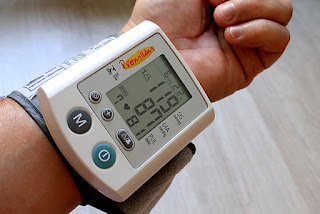What is Fasting?
The practice of fasting can be observed in various forms, each with its own set of rules and potential benefits.
 Intermittent Fasting (IF): This is probably the most popular form of fasting today. It involves alternating cycles of eating and fasting. There are several ways to practice IF:
Intermittent Fasting (IF): This is probably the most popular form of fasting today. It involves alternating cycles of eating and fasting. There are several ways to practice IF:- 16/8 Method: This method involves fasting every day for 14-16 hours and restricting your daily eating window to 8-10 hours. For example, if you finish dinner at 8 PM and don't eat until noon the next day, you're technically fasting for 16 hours.
- Eat-Stop-Eat: This method involves fasting for 24 hours, once or twice a week. For example, not eating from dinner one day until dinner the next day.
- 5:2 Diet: With this method, you consume only 500–600 calories on two non-consecutive days of the week, but eat normally the other five days.
Prolonged Fasting: This involves abstaining from food for a continuous period, typically anywhere from 48 hours to a week. Prolonged fasting should only be conducted under medical supervision due to the risk of nutrient deficiencies.
Alternate Day Fasting: This is a more extreme form of intermittent fasting, where practitioners alternate between 24-hour periods of no food intake (or very reduced calorie intake), and 24-hour periods of unrestricted eating.
Time-Restricted Feeding (TRF): Similar to the 16/8 method of IF, TRF involves eating only during specific hours of the day, typically within a 6-10 hour window.
Periodic Fasting: This involves occasional fasting or significantly reducing caloric intake for a few days at a time every few weeks or months.
Religious Fasting: Many religions practice forms of fasting, like Ramadan in Islam, where observers fast from sunrise to sunset for a month, or Yom Kippur in Judaism, a 25-hour fast.
Why Do People Fast?
People choose to fast for various reasons. Some fast for potential health benefits, like weight loss, improved insulin sensitivity, or better heart health. Others fast for spiritual or religious reasons. Many find that fasting can help simplify their meal plans or reduce meal prep time. However, it's essential to note that the effectiveness and safety of fasting can vary based on the individual's health status and the specific fasting method used.
The Link Between Fasting, Weight Loss, and Blood Pressure
When we talk about high blood pressure, or hypertension, one significant risk factor that comes to mind is obesity. The link between obesity and hypertension is well-established. Excess weight can lead to an increase in the amount of blood your heart has to pump, and the amount of resistance it faces while doing so, leading to higher blood pressure.
When you fast, particularly during longer periods, your body must find other sources of energy after it has used up the glucose stored in your liver. It starts to break down fat for energy, which can lead to weight loss. As weight decreases, blood pressure tends to follow suit because your heart doesn't need to work as hard to pump blood through your body.
Fasting and Insulin Resistance
Insulin resistance is a condition where your body's cells don't respond properly to the hormone insulin, leading to an overproduction of this hormone and higher levels of insulin in the blood. This can lead to several health problems, including type 2 diabetes and heart disease. High insulin levels have also been linked to high blood pressure, although the exact reasons are still being studied.
Fasting can improve insulin sensitivity, meaning your cells can better respond to insulin. Improved insulin sensitivity can help lower insulin levels in your blood, which may help regulate your blood pressure.
Autophagy: The Body's Recycling Program
Autophagy, derived from the Greek words for "self-eating," is a natural and controlled process that disassembles unnecessary or dysfunctional cellular components. It plays a crucial role in maintaining cellular health by breaking down and recycling cellular waste, including damaged proteins and organelles. Think of it as your body's recycling program, helping to clear out the old, broken parts to make room for new, functional ones.
How Does Fasting Induce Autophagy?
During periods of fasting, your body needs to conserve resources and generate new nutrients and energy to sustain its functions. This need for conservation and renewal signals the activation of autophagy.
In essence, when you're not eating, your body shifts from growth mode to maintenance and repair mode. It begins to clean up cells and recycle damaged components, a process that could promote healthier cells and more efficient cellular functions.
Autophagy and Blood Pressure
There's evidence to suggest that autophagy plays a significant role in cardiovascular health. A study published in "Hypertension" in 2018 showed that autophagy induction could help lower blood pressure in animal models. The researchers found that activating autophagy helped relax blood vessels, thereby reducing blood pressure.
In addition, autophagy has been shown to prevent the accumulation of damaged cells and reduce inflammation and oxidative stress, which are known contributors to high blood pressure and cardiovascular disease.
Autophagy: A Promising but Complex Field
Despite the promising findings, the connection between autophagy and blood pressure regulation is complex and not yet fully understood. While the initial research is promising, we need more studies, particularly in humans, to confirm these findings and to better understand how we might harness autophagy for blood pressure control.
Moreover, it's important to note that while fasting can induce autophagy, it's not the only way to do so. Regular exercise and a balanced, nutrient-rich diet can also contribute to maintaining healthy autophagy levels.
Inflammation and Blood Pressure
Inflammation is a natural biological response that your body initiates in response to injury, infection, or harmful stimuli. This process helps to protect and heal the body. However, when inflammation becomes chronic or systemic, it can contribute to numerous health problems, including hypertension.
Chronic inflammation can damage blood vessels over time, promoting atherosclerosis or the buildup of plaque in the arteries. This plaque can stiffen and narrow the arteries, increasing the resistance to blood flow, which in turn raises blood pressure. Furthermore, inflammation can influence the balance of chemicals in your kidneys, impacting how they regulate blood pressure.
Fasting and Inflammation
Now, how does fasting come into the picture? Research suggests that fasting, particularly intermittent fasting, can help reduce inflammation.
During a fasting state, your body changes the way it metabolizes energy. One of these changes includes lowering the production of proteins called cytokines, many of which are involved in promoting inflammation.
A study published in 2011 showed that both intermittent and periodic fasting reduced inflammatory marker levels. Another study in 2019 suggested that fasting for as little as 24 hours could significantly reduce inflammation.
Fasting may also reduce inflammation by promoting better gut health and autophagy, as mentioned earlier. Both a healthy gut microbiome and efficient cellular recycling can help keep inflammation in check.
Balancing the Benefits and Risks of Fasting
While the potential anti-inflammatory effects of fasting may sound promising for blood pressure management, it's essential to approach this with a balanced view. Fasting isn't a magic bullet and isn't suitable for everyone. It should not replace a balanced, nutritious diet and a healthy lifestyle, which are crucial for managing blood pressure and overall health.
Moreover, while some studies have shown positive results, the relationship between fasting, inflammation, and blood pressure is complex and requires more research


